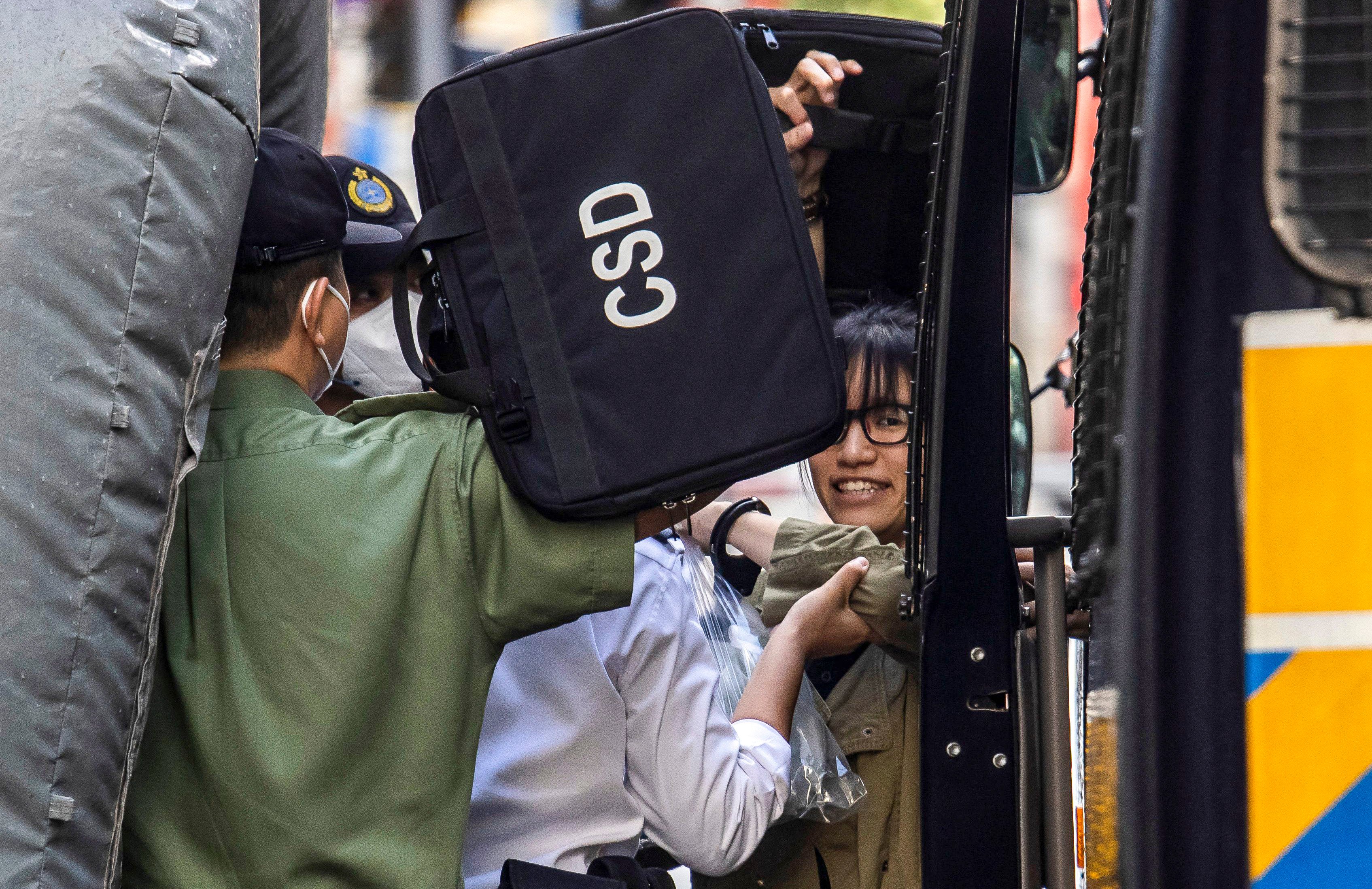Civil servants, from cleaners to policymakers, will need to fulfil their duty to identify national security breaches under new guidelines that will soon be released, Hong Kong’s security chief has said.
Secretary for Security Chris Tang Ping-keung said that even though Hong Kong had returned to stability after the 2019 anti-government protests, national security risks remained as Western countries continued to use the city as an avenue to blockade China.
“External forces, like the West, in a bid to oppress us, will use Hong Kong for acts of blockade and suppression on our country. That won’t change under the current geopolitical climate,” Tang said, citing a white paper on national security issued by the State Council, the country’s cabinet, last month.
The paper accused “external forces” and “certain individual countries” of posing threats to the mainland’s security, including stirring up trouble in Hong Kong.
Tang’s comments come as the national security law approaches its fifth anniversary at the end of this month. The Beijing-imposed law came into effect on June 30, 2020, and criminalises secession, subversion, terrorist activities and collusion with foreign forces.
Hong Kong passed its own domestic national security legislation, also known as Article 23, in March last year. The Safeguarding National Security Ordinance covers 39 offences divided into five categories: treason; insurrection, incitement to mutiny and disaffection, and acts with seditious intention; sabotage; external interference; and theft of state secrets and espionage.
Tang revealed that authorities were in the “final stages” of formulating national security law guidelines for civil servants and aimed to roll them out by the end of the month.
“Besides the law, we also hope to use simple language and plenty of examples to let our civil servants know that no matter which post or rank you hold, you may face national security risks and should be able to identify them,” Tang said.
He raised two examples of how civil servants on all fronts, from cleaners to policymakers, should keep in line with the national security law.
Government-hired cleaners should notify supervisors if they spot slogans suspected of promoting Hong Kong independence in public bathrooms, Tang said, while civil servants responsible for approving funding to external organisations should object to relevant requests when a beneficiary was suspected of violating national security laws.
Tang revealed that the number of arrests related to national security crimes had dropped yearly since 2020. He said that the 332 arrests over the period showed authorities were only using the law to target a “small minority” of people.
But he warned that risks would remain in the city as long as geopolitical tensions existed, emphasising that Hong Kong had to remain vigilant as external forces, local terrorism, absconders and “soft resistance” continued to threaten national security.
Tang said external forces continued to “smear” Hong Kong and issue sanctions on officials, with their local agents putting up “soft resistance” while trying to incite hatred towards the government.
The term “soft resistance” was first coined in April 2021 by former central government liaison office director Luo Huining, with Tang himself explaining two years later that such activities would take place under the guise of human rights and the arts to cover up organisers’ intent to divide society.
But when asked how the law should be enforced on “soft resistance” in the future, as actions that fell into this category could be lawful, Tang said that they were indeed “sometimes legal, sometimes illegal”.
“If they are illegal, we will enforce the law accordingly. Many cases of ‘soft resistance’ have been criminally prosecuted. Besides enforcing the law, promotion and education are also important,” Tang said.
The minister added that his bureau would issue clarifications and rebuttals whenever misinformation emerged.
Tang also said authorities were reviewing a judgment from the Court of Final Appeal that quashed the convictions of three core members of a now-disbanded alliance – organisers of the city’s annual Tiananmen Square vigil – for refusing to cooperate with a police investigation.
The city’s top court ruled that the police commissioner must be able to prove that someone was a foreign agent before the force could directly issue a notice to the suspected person or organisation to hand over information without a prior disclosure order from the court.
“We are reviewing the relevant case’s judgment. We will need to take appropriate measures to plug relevant loopholes. New risks and situations will keep emerging; that’s why we have to evaluate our operations, our laws and promotional work for improvements,” Tang said.
On local terrorism, Tang said one type involved organised groups seeking to inflict physical harm on residents. He cited the example of the “Dragon Slaying Brigade” plot to ambush police with firearms and use up to 20kg (44lbs) of explosives during the 2019 social unrest. Eight people were convicted while six others were acquitted by the jury.
The other type of terrorist act was conducted by lone wolf attackers who operated without accomplices. This kind of potential attack was harder to detect than organised groups.
“When we are investigating these cases, there are definitely challenges, including their elusive nature, especially with lone wolf attacks,” Tang said.
“However, I believe that when anyone commits a crime or intends to do so, there will be traces left behind.”
